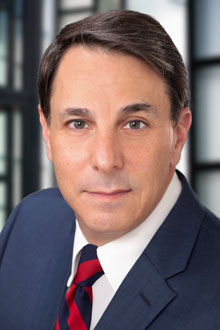Employers Should Be Aware of the FTC’s Effort to Impose a Nationwide Non-Compete Ban

Charlotte, N.C. (April 29, 2024) – On April 23, 2024, the Federal Trade Commission decided by a 3 to 2 vote to approve regulations that would ban most non-compete clauses for employees. This regulation may affect more than 30 million contracts. Specifically, the Commission determined it is an unfair method of competition, and therefore a violation of Section 5 of the FTC Act, for employers to enter into non-compete agreements with workers and to enforce those agreements. If implemented as passed by the FTC, this regulation would not only nullify most existing non-compete agreements, but also expose employers who seek to enforce such agreements to significant penalties.
The final rule is scheduled to become effective 120 days after publication in the Federal Register. However, the U.S. Chamber of Commerce and others have already sued, arguing the FTC lacks authority to issue such a rule. It is possible one or more courts could issue preliminary injunctions staying implementation of the Rule.
If the Rule takes effect, it will apply only to for-profit businesses, which will be prohibited from enforcing existing non-compete agreements against their employees other than senior executives. A senior executive is defined as a person earning more than $151,164 annually who has policymaking responsibilities. The Rule also bans employers from imposing new non-compete contracts on senior executives in the future. The rule requires employers to notify current and past employees that existing non-compete provisions will not be enforced.
Additionally, the FTC Rule would ban all employment contract provisions that create “functional” non-compete clauses; i.e. any contractual clause that may have the “effect” of prohibiting workers from seeking or accepting other employment. The Rule purports to supersede all contrary state laws governing non-compete agreements applicable to employees.
Notwithstanding the Rule’s extremely broad reach, there are some exceptions. For example, employers may continue to prohibit employees from competing during their employment. Additionally, the Rule does not appear to extend to non-solicitation provisions. Importantly, certain industries have been exempted from the Rule, including non-profit healthcare employees, air carriers, and banks and credit unions. The Rule permits limited use of non-compete agreements between franchisees and franchisors.
Finally, the Rule does not apply to contractual provisions that restrict the sellers of a business from competing with their former businesses. Nevertheless, the Rule will apply to, and therefore ban, non-compete agreements that employees - as opposed to business owners – may have been required to execute as part of a merger or acquisition.
It is anticipated that, to ensure compliance with the Rule if it goes into effect, employers will look to the provisions of employment agreements already in use in states such as California, where non-competes have long been unenforceable. As an alternative to non-compete provisions, employers may have to look to trade secret laws – including the federal Defend Trade Secrets Act – as well as confidentiality and return of property provisions to protect proprietary and other sensitive information and preserve good will.
If the FTC Rule becomes effective in its current form, it will constitute a substantial change in the ability of employers to use contracts to protect their confidential business information and goodwill. However, it is far from clear when or if the Rule will ever be implemented. Lewis Brisbois is ready to assist employers in preparing to meet this significant proposed change.
For more information on these developments, contact the authors or editor of this alert. Visit our Labor & Employment Practice page to learn more about our capabilities in this area.
Authors:
Kevin Parsons, Administrative Partner - Charlotte
Taylor Farrier, Associate
Editor:
Bill Helfand, Partner


